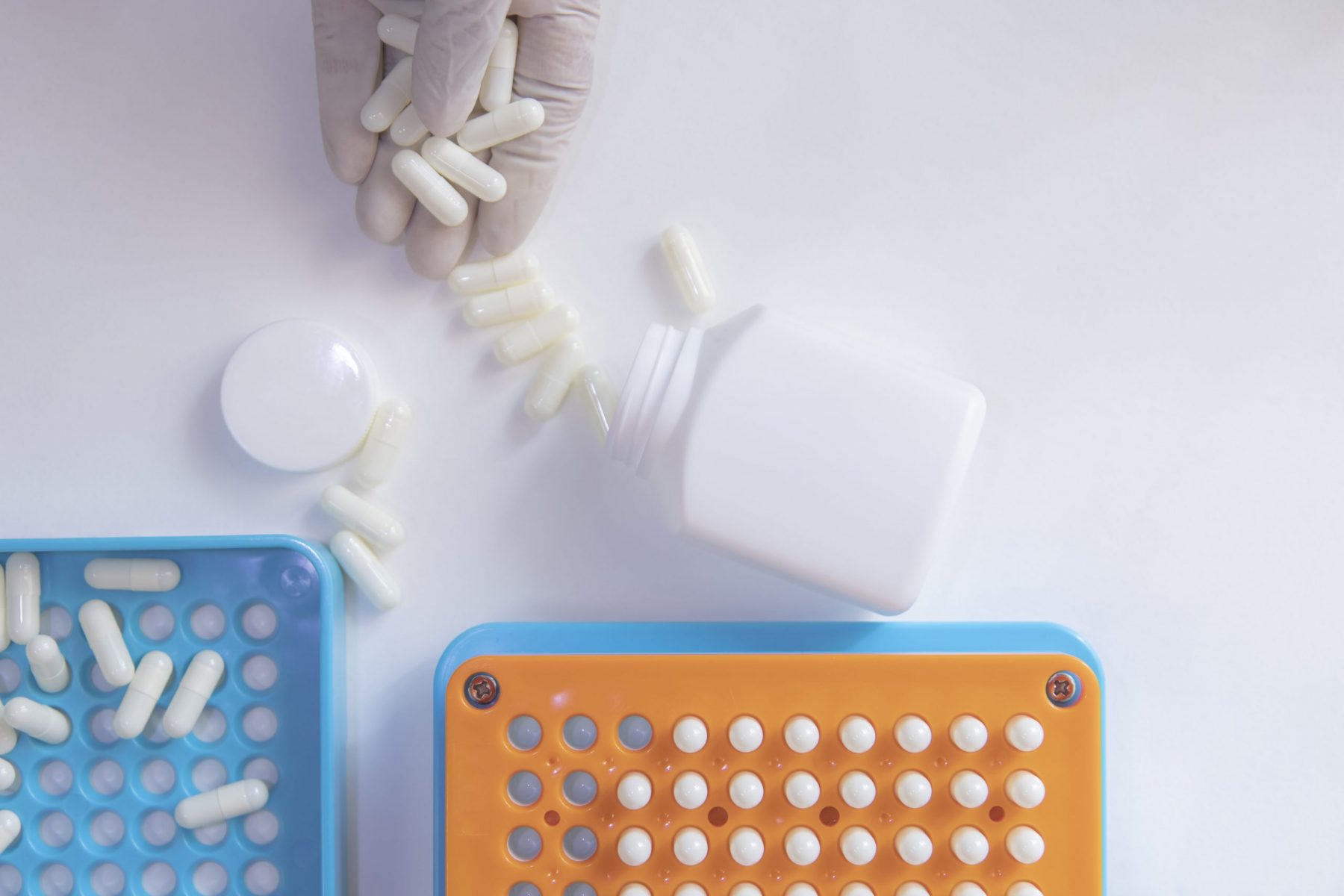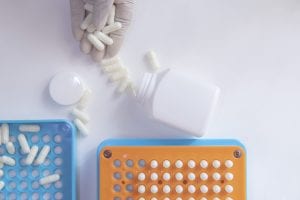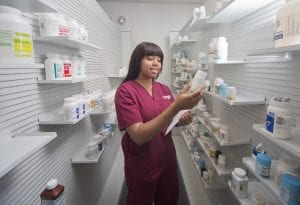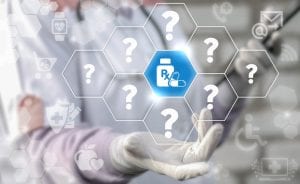Pharmacy technicians are responders to the coronavirus pandemic, showing their dedication and diligence every day. They play a vital role when it comes to providing the public with medicines, therapeutics, vaccines and patient care. It’s no surprise that there is an increasing pharmacy job demand to help with COVID-19 patient care whenever possible.
Brave pharmacy technicians—COVID-19 front liners—are stepping up to the plate to help out in any way they can.
Promoting during COVID-19
Pharmacies and their pharmacy technicians are following CDC guidelines during the pandemic. They are all wearing face masks and requiring anyone who visits the pharmacy to do the same. Additionally, if they have fevers or coronavirus symptoms, they are staying home until they have completely recovered to protect their fellow staff members and their customers.
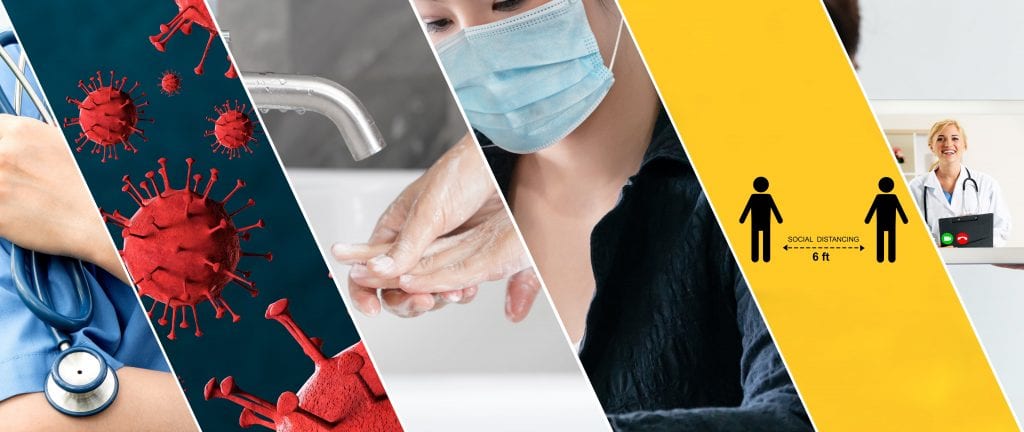
Taking extra precautions when filling prescriptions
Filling prescriptions and dispensing medications are key jobs of a pharmacy technician, but in this time of COVID-19, it is necessary to take extra precautions. Often, pharmacy staff must consult with customers and explain their medications, the dosage and possible side effects. Now, however, social distancing is a must to lower the chances of spreading the virus. Here’s what pharmacy technicians can do:
- Have hand sanitizer (at least 60 percent alcohol) available on counters for customers to use; pharmacy staff should have easy access to soap and water for washing their hands frequently.
- Ask customers to submit prescription orders via the phone or online whenever possible and pre-pay online if they can.
- Limit direct contact by placing the filled prescription on the counter for the patient to pick up.
- Avoid handling insurance cards and ask the customer to read the information aloud.
- Try to not touch items the customer has touched.
- Encourage home delivery or curbside pickup of medications.
- Put a plastic barrier or vinyl shield between the pharmacy desk and the patient and add a pass-through slot to avoid direct contact.
Carefully reconsider administering routine preventive vaccinations to adults
Pharmacies often provide routine vaccinations for seasonal flu, shingles and pneumonia to their customers. However, that involves close contact, which could be unsafe. The CDC recommends evaluating the community’s COVID-19 situation before regularly administering vaccines. If it’s deemed safe, give priority to older adults or those with underlying conditions. Screening for fever and COVID-19 symptoms is advisable.
Multitasking in the era of COVID-19
The evolving role of pharmacy technicians during the pandemic is at the forefront of health care. Pharmacy technicians are multitasking during the crisis. They’re supporting dispensing, immunizations, compounding and many other duties. Some are even helping at long-term care facilities to facilitate immunizations of residents. Some pharmacies are trying to secure COVID-19 testing, which the techs can administer.
The job demand for pharmacy technicians
According to O*NET OnLine, jobs for pharmacy technicians are projected to grow 7 to 10 percent through 2028, which is faster than the average for other jobs. Pharmacy tech jobs are in demand because they are part of the allied health industry, which is growing every day. Ten of every 20 occupations of high growth in the U.S. are in health care—especially in Chicago, a hub for medicine. As pharmacies expand their offerings (including clinical care) to customers, more pharmacy technicians will be required to staff them.
A pharmacy technician’s
A pharmacy technician has a number of duties that make a typical day of work different each day. Specific responsibilities could vary, depending on where the tech works: in a hospital, lab, retail pharmacy, compounding pharmacy, nursing home or mail-order pharmacy. These are some of the typical duties:
- Communicate with customers. The tech is usually the first point of contact for pharmacy customers—the face of the pharmacy—and as such needs to greet, listen to, interact with and help customers who have questions about their prescriptions and health.
- Enter data in the computer. This might include entering insurance information, changing patients’ personal information, ordering supplies and creating labels.
- Process medications. Count pills, fill bottles and label medications.
- Fulfill prescription requests. It’s critical to dispense drugs properly: check for drug interactions, duplicate prescription requests, correct dosage and more.
- Manage pharmacy inventory. As new stock comes in, you’ll need to put it on the shelf and also make sure medications have not expired.
- Help patients take care of their health. You’ll need to go over the details of their medication, answer questions and make sure they understand how and when to take it.
Read our other Pharma Blogs Here:
Health care training programs for pharmacy technicians
You can get pharmacy technician training at Coyne College Chicago. Complete your program in as little as 42 weeks. Enroll in Coyne’s 42-week pharmacy tech program and prepare for a rewarding career. You’ll learn how to enter and order meds, keep records, mix IV solutions and compound products, and fulfill prescription orders. In addition to traditional classroom instruction by industry-professional faculty members, you’ll participate in a hands-on externship that will give you real-world experience. Once you graduate, you will be qualified for entry-level positions in retail or hospital pharmacies.
A career as a pharmacy technician is on the health care industry lookout. Contact Coyne College today to train for your career.

